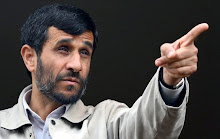Stopping by Woods on a Snowy Evening by Robert Frost
Here's a poem for the first day of winter. Happy holidays from Poem of the Week!
Stopping by Woods on a Snowy Evening
Whose woods these are I think I know.
His house is in the village, though;
He will not see me stopping here
To watch his woods fill up with snow.
My little horse must think it's queer
To stop without a farmhouse near
Between the woods and frozen lake
The darkest evening of the year.
He gives his harness bells a shake
To ask if there's some mistake.
The only other sound's the sweep
Of easy wind and downy flake.
The woods are lovely, dark, and deep,
But I have promises to keep,
And miles to go before I sleep,
And miles to go before I sleep.
 Robert Frost was born in San Francisco in 1874. He moved to New England at the age of eleven and became interested in reading and writing poetry during his high school years in Lawrence, Massachusetts. Frost lived and taught for many years in Massachusetts and Vermont, and died in Boston on January 29, 1963.
Robert Frost was born in San Francisco in 1874. He moved to New England at the age of eleven and became interested in reading and writing poetry during his high school years in Lawrence, Massachusetts. Frost lived and taught for many years in Massachusetts and Vermont, and died in Boston on January 29, 1963.
Stopping by Woods on a Snowy Evening
Whose woods these are I think I know.
His house is in the village, though;
He will not see me stopping here
To watch his woods fill up with snow.
My little horse must think it's queer
To stop without a farmhouse near
Between the woods and frozen lake
The darkest evening of the year.
He gives his harness bells a shake
To ask if there's some mistake.
The only other sound's the sweep
Of easy wind and downy flake.
The woods are lovely, dark, and deep,
But I have promises to keep,
And miles to go before I sleep,
And miles to go before I sleep.
 Robert Frost was born in San Francisco in 1874. He moved to New England at the age of eleven and became interested in reading and writing poetry during his high school years in Lawrence, Massachusetts. Frost lived and taught for many years in Massachusetts and Vermont, and died in Boston on January 29, 1963.
Robert Frost was born in San Francisco in 1874. He moved to New England at the age of eleven and became interested in reading and writing poetry during his high school years in Lawrence, Massachusetts. Frost lived and taught for many years in Massachusetts and Vermont, and died in Boston on January 29, 1963.


